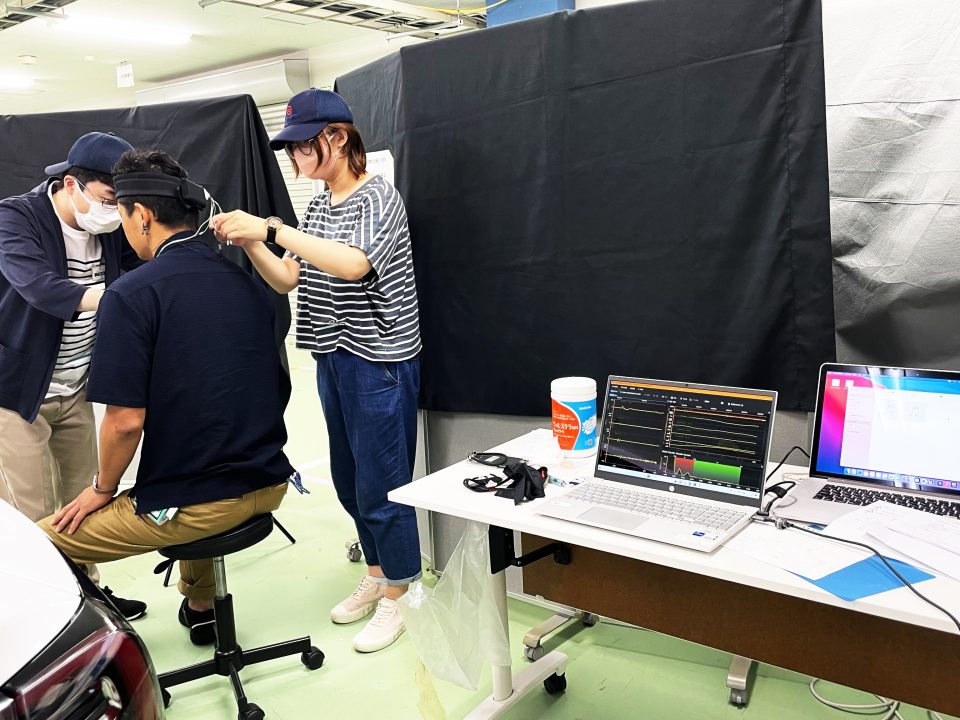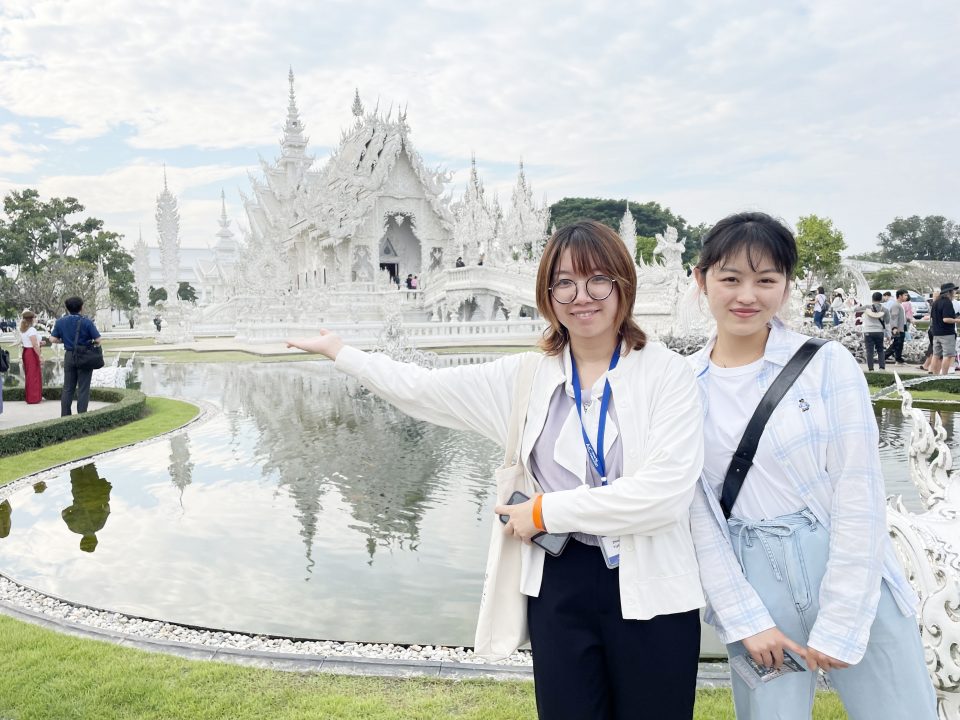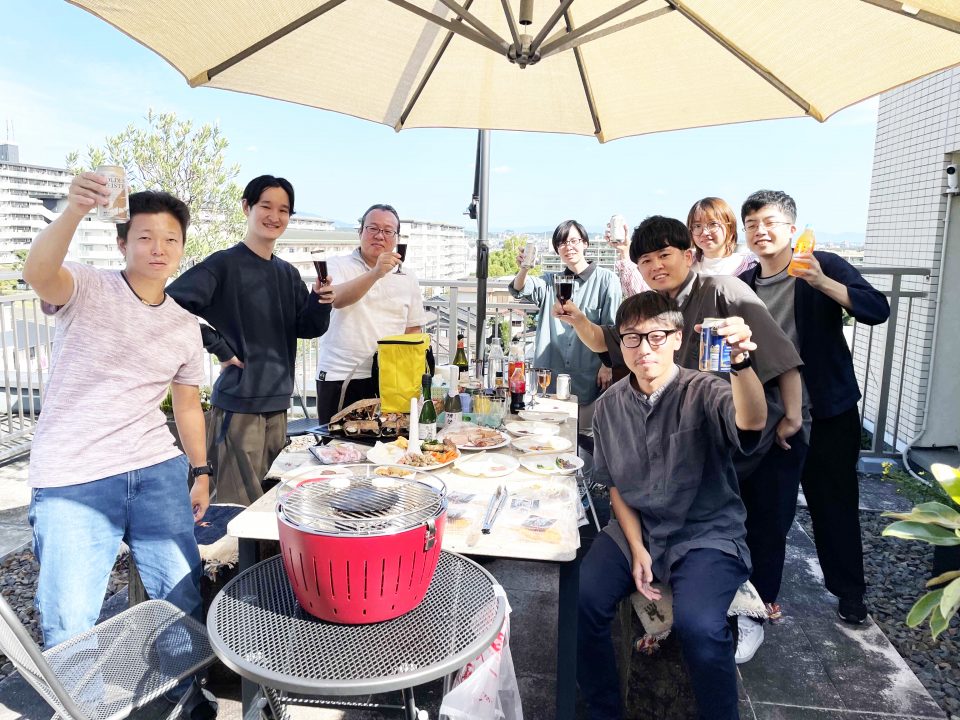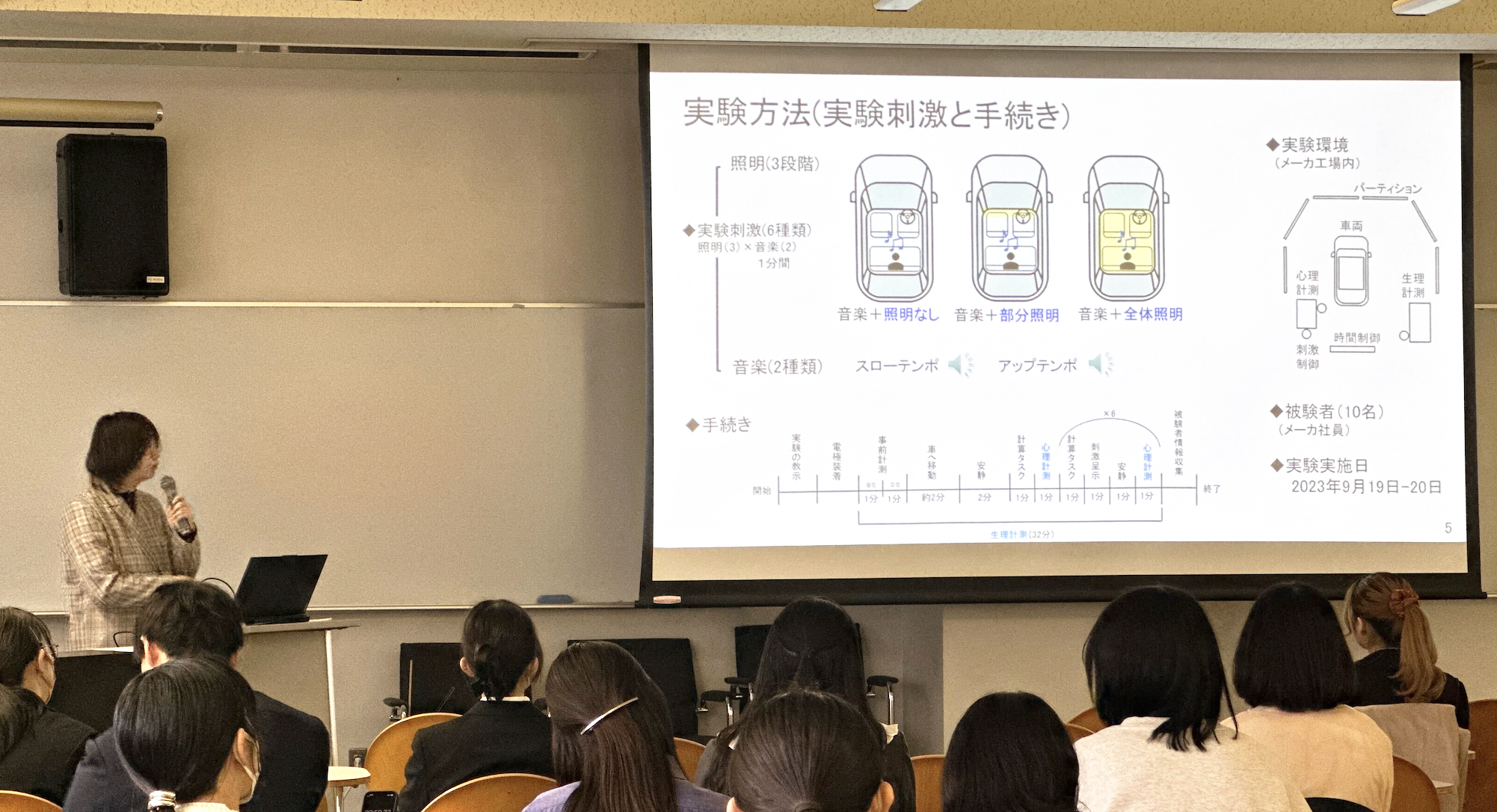Yizhu Zhou is an international student from Harbin, Heilongjiang Province in northern China.
As an undergraduate, she majored in Information Management and Information Systems at Hangzhou Dianzi University in southern China. We asked her about her research and daily life as a graduate student at Meijo University.
Zhou presenting at a conference
You’ve had an interest in Japan for quite some time—What first sparked your curiosity?
I’ve been watching Japanese anime since I was a kid. My favorite was NARUTO. That made me interested in Japanese swordsmanship, and I joined the kendo club at university, where I trained for three years. Since manga and anime are available in China almost at the same time as in Japan, I often talked about them with other members of the club.
Wasn’t it tough to wear all that protective gear? Is kendo popular in China?
I actually thought the armor looked really cool. Kendo is quite popular in China. The kendo club at Alibaba is known to be really strong.
Why did you choose Aichi Prefecture (Nagoya)?
I have an uncle who did his graduate studies in medical sciences in Nagoya and now runs his own business there, so that influenced my decision.
What made you choose Professor Kawasumi’s lab at Meijo University?
My uncle recommended Meijo University to me. While browsing the university website, I came across Professor Kawasumi’s lab. One thing that stood out to me was that Professor Kawasumi is a woman working in the field of computer science—that really caught my attention! (laughs)
What’s your impression of Meijo University?
The students are very stylish and seem very active in their club activities.
What kind of research are you working on?
My research focuses on analyzing human emotions using physiological measurements in interior lighting environments for next-generation mobility systems.
Why did you choose that research topic?
Among the various research projects conducted in Professor Kawasumi’s lab, this one caught my interest. As autonomous driving technology continues to advance, I believe that improving the in-vehicle environment will become increasingly important.
Nagoya is also a major hub for the automotive industry, and since I hope to find a job in Japan, this project—being a collaborative study with companies—seemed especially useful for my future. Professor Kawasumi also encouraged me to pursue it.

What do you find most interesting about your research?
I didn’t have the chance to work on this kind of research during my undergraduate studies, so I find it fascinating to measure physiological data—like heart rate and brain waves—using specialized devices. It’s also my first time participating in a collaborative project with a company or conducting experiments in a corporate setting, so I’m learning a lot from the experience.
What do you find challenging about graduate school?
It was my first time taking classes and joining lab meetings in Japan, so getting used to everything was tough. Even now, I sometimes struggle to fully grasp my role and the intentions behind what’s expected of me.

Professor Kawasumi mentioned that you’re a deep and logical thinker, which makes you well-suited for research. What skills would you like to develop before completing your degree?
I attended an international conference in Thailand as a co-author and helped with the poster session. In the future, I hope to give presentations at international conferences myself, so I want to become a better presenter.
You’ve also worked as a teaching assistant (TA), giving research presentations to undergraduate students and helping with Java programming exercises, right?
Yes, I’ve given slide presentations at academic conferences twice so far, but I still get very nervous speaking in front of people.
You visited Kochi during the long vacation. What made you want to go there?
I became a fan of Ryoma Sakamoto because of a video game! (laughs) I went with a Chinese friend who also likes Sakamoto. We had seared bonito (katsuo no tataki) and it was delicious. I’m also a fan of Golden Kamuy, so I’d love to visit Hokkaido someday too.
Besides seared bonito (katsuo no tataki), I hear your favorite food is takoyaki.
I even tried making takoyaki myself at a lab party!

Do you have any advice for students who are planning to study at Meijo University?
Taxis and fruit can be quite expensive here, but overall, I’m living comfortably. My hometown, Harbin, is extremely cold, but Nagoya is much warmer. When I was in Hangzhou for university, there were mosquitoes all year round, which I didn’t like. Here in Nagoya, they disappear in winter, so it’s not as bad. Also, I find it very convenient that you can take the Shinkansen or trains without going through baggage checks or ID verification. And convenience stores offer so many services—you can even buy event tickets there!
What are your dreams for the future?
I hope to get a job at a company in Aichi Prefecture and work hard. I don’t think Tokyo would suit me… But maybe 20 years from now, I’d like to return to China and repay my parents for everything they’ve done for me.

[Interview Date] June 24, 2024

